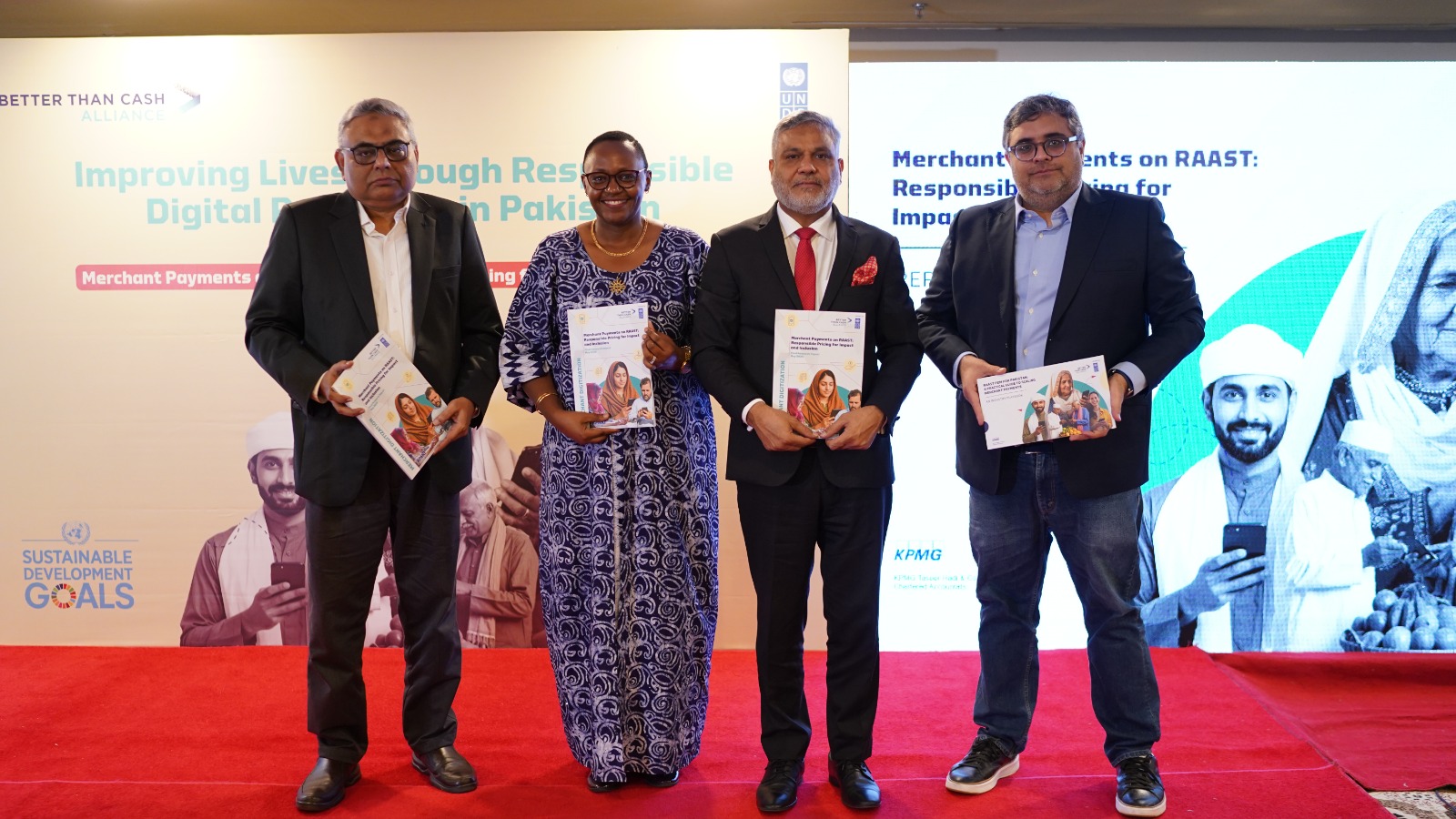A blueprint to accelerate digital payments adoption and usage of Pakistan’s instant payment system
The Better Than Cash Alliance today released a report presenting a practical blueprint for responsible pricing to scale merchant payments on RAAST, Pakistan’s instant payment system.
The report supports policymakers and providers in designing merchant solutions for small businesses and long-term ecosystem viability at the right price point to support the attainment of the State Bank of Pakistan’s digital financial inclusion goals.
Despite progress in digital finance, cash still dominates Pakistan’s economy, costing the country trillions of rupees each year in lost tax revenue, cash handling, and idle liquidity. The new RAAST pricing blueprint outlines how to scale merchant (person-to-merchant, or P2M) payments by uniting policymakers and providers behind a sustainable, affordable model that works for micro and small businesses.
The recommendations emphasize responsible, cost-based pricing, combined with early adoption incentives and 24/7 recourse to build trust in digital transactions. To sustain momentum, the report proposes creating a National Merchant Payments Working Group to coordinate data-driven reviews, financial literacy initiatives, and merchant education.
Recognizing RAAST as a national public good, the report reflects the State Bank’s emphasis on responsible pricing as policy – avoiding zero-pricing distortions, and pairing affordability with market viability and reliability.
Saleem Ullah, the Deputy Governor, State Bank of Pakistan, during his speech, said, “RAAST is a national digital public infrastructure and the pivot of our digitization efforts. The ultimate goal is to win the war against cash and that can only be achieved through partnerships and collaborations. We are pairing early incentives for merchants with a responsible, sustainable pricing approach keeping acceptance affordable while enabling banks, fintechs, EMIs, PSOs, and PSPs to keep on investing in the ecosystem. With strong consumer protection and fair competition, we will scale person-to-merchant payments in a way that builds trust and inclusion.
The Alliance underscores that adoption will hinge on merchant trust and usability, not price alone. Consistent with the UN Principles for Responsible Digital Payments, the blueprint prioritizes features that meet merchants where they are, especially micro and women-led businesses: predictable low pricing, instant confirmations, reliable recourse, and low-bandwidth options.
- Nshuti Mbabazi, Managing Director, Better Than Cash Alliance, said, “I thank RAAST for prioritizing the needs of micro and small businesses in Pakistan first to design responsible solutions to serve them. This is an exemplary step in enacting the UN Principles for Responsible Digital Payments, especially Principle 5. By building ‘end-to-end digital payment experiences that benefit every citizen/resident of Pakistan, and ensuring you make recourse clear, quick, and responsive, I do not doubt that the ambition you have set out to be an economy where digital payments are better than cash can be attained in no time. With responsible RAAST pricing and fully transparent communication -‘particularly on pricing’ – your people can turn everyday transactions into confidence, growth, and inclusion.”
The report situates RAAST within Pakistan’s National Financial Inclusion Strategy (NFIS) and the State Bank of Pakistan’s National Payment Systems Strategy (NPSS), recognizing it as core national digital public infrastructure.
Key findings from the report
- Responsible pricing as policy: A 0.35% Merchant Discount Rate (MDR) floor, with sector-specific adjustments and no issuer interchange, ensures provider viability while keeping merchant costs low. This avoids a “race to the bottom” and enables investment in acquisition, reliability, and service quality.
- Early-stage incentives:Time-bound incentives (e.g., micro-transaction zero fees, cashback/tax relief) can drive habit formation and initial acceptance among micro and women-led merchants, paired with clear messaging that P2M is distinct from P2P.
- Governance that learns:A National Merchant Payments Working Group is recommended to oversee dynamic reviews and ecosystem coordination.
Beyond pricing: Trust and inclusion matter, 24/7 dispute resolution, gender-intentional onboarding, and Unstructured Supplementary Service Data (USSD)/ Near Field Communication (NFC) options for low-connectivity areas are essential for scale.

